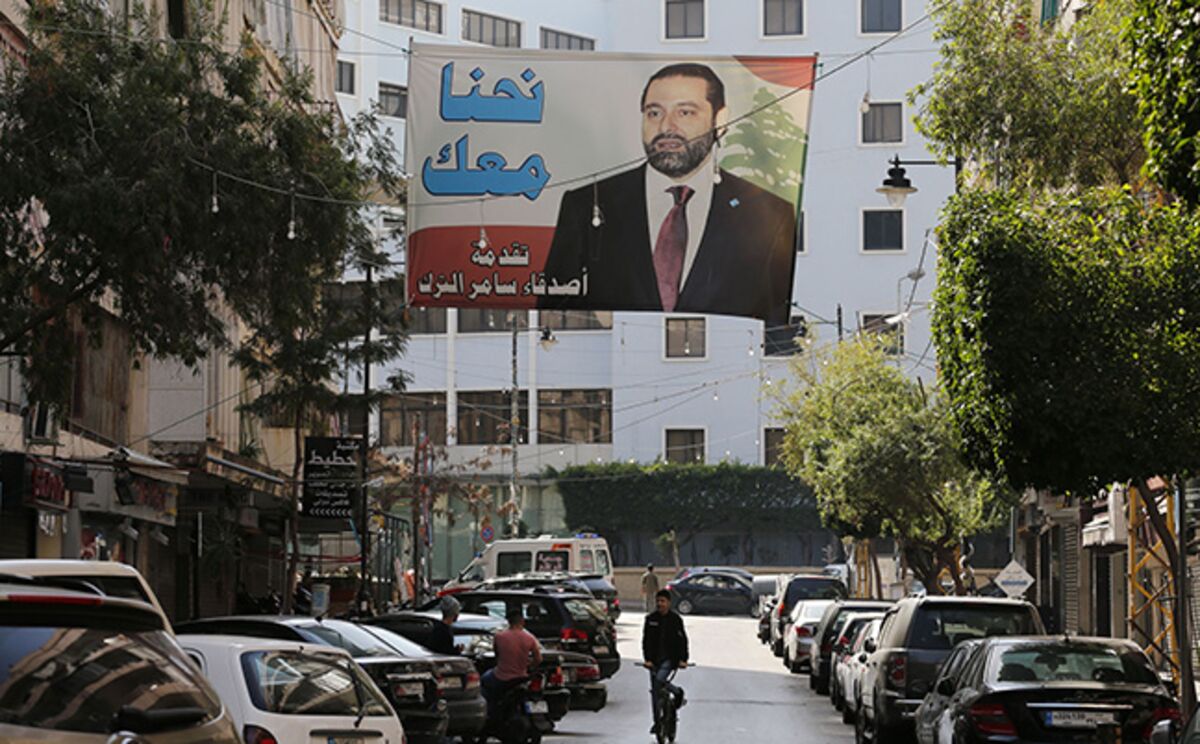
Saudi Arabia has embarked on another foreign policy adventure by intervening in Lebanon`s delicate sectarian power balance to undermine Iranian-backed Hezbollah.
Yet even working with the U. and Israel in trying to isolate the group, the Saudis could end up being little more than a minor inconvenience for militants whose tentacles have stretched from their southern Lebanon heartlands in recent years. Hezbollah is a regional force, with combatants in Yemen, Iraq and helping President Bashar al-Assad prevail in Syria.
Lebanese Prime Minister Saad Hariri appeared to be targeting Hezbollah and its Iranian allies when he abruptly announced his resignation from the Saudi capital Riyadh on Nov. 4 saying he feared for his life. That raised concerns Lebanon is once again caught between regional sectarian rivals Iran and Saudi Arabia. Tensions remain high, yet there are no signs other Lebanese factions are prepared or able to take on Hezbollah.
If the group emerges from the crisis unscathed, then its chief, Hassan Nasrallah, “will win by not losing,” said Denis Sullivan, co-director of the Middle East Center at Northeastern University in Boston. It’s too late to counter Hezbollah at least not in a “one fell swoop,” said Sullivan. “The cat is out of the bag and Hezbollah is out of Lebanon. It’s everywhere now.”
What`s Next?
The drama that saw Hariri end up in Saudi Arabia hasn’t been resolved yet. He said on Sunday he would return soon, though stressed he would only retract his resignation if Hezbollah halts its engagements in other countries.
That has been a long-standing demand by Saudi Arabia, an erstwhile supporter of Hariri, who was born in Riyadh, and his father, Rafiq, who was assassinated in 2005. It accused Hezbollah of being behind a ballistic missile fired at the Saudi capital shortly after Hariri junior’s resignation and advised its nationals to leave Lebanon, accusing the Shiite group of plotting attacks against the kingdom, including from Yemen.
For their part, the Saudis have been pursuing a more active foreign policy under Crown Prince Mohammed bin Salman, the king’s 32-year-old son who is trying to transform the country. They have been bombing Yemen since 2015 in an attempt to restore an ally to power and are leading an embargo against Qatar.
How Did Hezbollah React?
Nasrallah has spoken twice about the resignation and in both speeches his demeanor was calm and conciliatory, dispelling fears of an all-out conflict with the Sunnis and joining calls for Hariri’s return from Saudi “detention” despite “our political differences.”
The strategy has been to disparage the Saudi move, said Sami Nader, head of the Beirut-based Levant Institute for Strategic Affairs. That argument allowed Nasrallah to portray the crisis as a blow to international law rather than one about the group’s involvement in other regional conflicts, Nader said.
Hezbollah is part of the Lebanese government and needs the political cover Hariri has provided at a time of increasing U. sanctions on the group and escalating Israeli rhetoric about bombing Lebanon back to the Stone Age, said Nader.
What Were the Saudis Trying to Do?
A few days before Hariri’s resignation, Saudi Minister of State for Gulf Affairs Thamer al-Sabhan said on Twitter he was surprised that the Lebanese government and people were silent over Hezbollah’s participation in a war against his country. It was a reference to the conflict in Yemen.
The strategy was to inflict pain within Lebanon -- economic, diplomatic and political -- and whittle the tolerance and support for Hezbollah, said Sanam Vakil, adjunct professor of Middle East Studies at the Johns Hopkins University School of Advanced International Studies. The playbook was from 2005, when protests drove out the Syrians from Lebanon following Hariri senior’s murder.
“The hope is that there will be some similar momentum and public pressure,” said Vakil. But that has not happened to a group founded in the 1980s and entrenched in Lebanon`s political and social fabric. “Nasrallah is a survivor, so the question is what ideas are they cooking up to come out of this stronger,” Vakil said.
What Can the Saudis Do Now?
Under Lebanon`s sectarian power-sharing agreement, Lebanon’s prime minister must be Sunni, the president a Maronite Christian and parliamentary speaker a Shiite.
Peace has largely held since the 1975-1990 civil war, though friction has increased in recent years as more than a million mainly Sunni refugees from Syria poured into the country, Hezbollah championed the Shiites and the Christians sought to protect their interests.
But in terms of directly hurting Iran and Hezbollah in Lebanon, the Saudis are limited, said Bilal Saab, senior fellow at the Middle East Institute in Washington. The Hariri crisis has been just “a headache for Hezbollah,” he said.
What`s more, any direct measures against Lebanon could backfire on Saudi Arabia. Sunnis, Christians and Druze will pay a heavier price than Hezbollah if Gulf countries impose sanctions on Lebanon, said Bishara Abu Rejeily, 40, an IT specialist.
“Hezbollah gets money bags from Iran, so they won’t be affected,” he said on Beirut`s Hamra Street. “They want to tighten the noose on us economically so we rise against Hezbollah. It won’t happen.”
— With assistance by Mark Williams, and Dana Khraiche.


0 comments:
Post a Comment